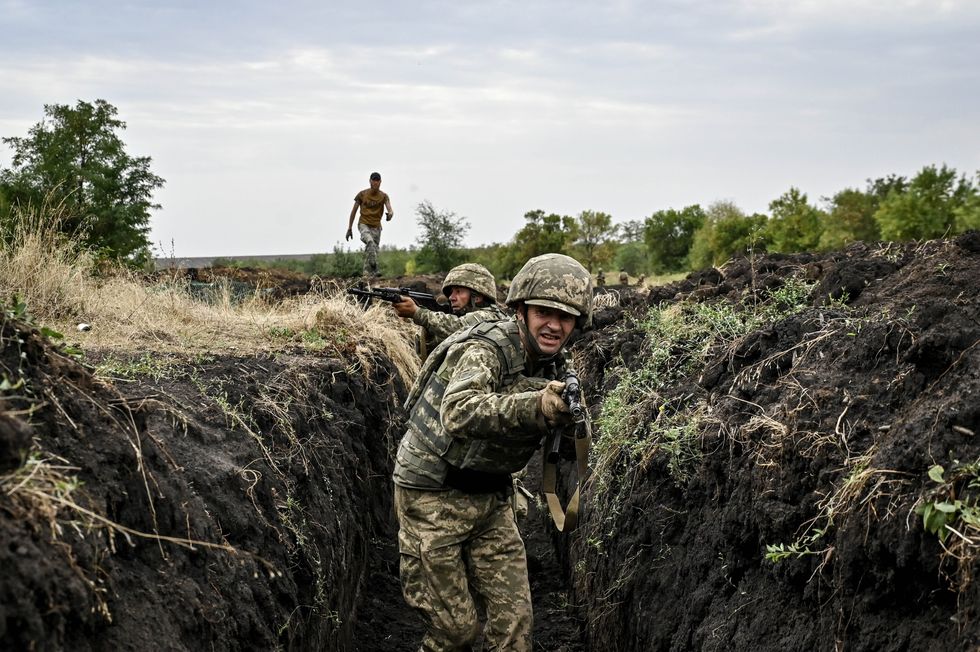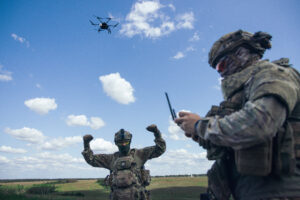BERLIN — Even people with the most diverse opinions can agree on one thing at the moment: Germany must push for diplomacy in order for the Russian war of aggression in Ukraine to finally come to an end.
For the latest news & views from every corner of the world, Worldcrunch Today is the only truly international newsletter. Sign up here.
Politicians on all sides of the political spectrum have spoken about this — putting emphasis on how the German government should focus less on arms delivery and more on negotiations. “Diplomacy is the only way,” said Michael Kretschmer of the Christian Democratic Union (CDU) party.
Reference is then often made to the negotiations between Ukraine and Russia in Istanbul in spring 2022, which almost ended the war. The lesson: it can be done if you only want to.
Such claims are deliberately misleading. They paint the picture of a German government that is pumping weapons into Ukraine and blocking diplomacy. True to the motto: Whoever negotiates has already lost.
But this picture is not accurate. Wherever possible, negotiations have been going on for a long time. And the Germans would do well to let other countries take the lead.
There are, for example, the talks between the Ukrainians and Russians mediated by Qatar: both countries are to refrain from shelling critical energy infrastructure, as the Financial Times has recently reported. A deal was said to have been within reach until the Ukrainian army advanced this summer into the south of Russia.
Negotiations have been ongoing
Prior to this, Qatar had already brokered the return of a few Ukrainian children, thousands of whom are being systematically abducted to Russia.
There is the prisoner exchange: Russia and Ukraine have already exchanged their prisoners of war 57 times. The last exchange happened in October, facilitated by the United Arab Emirates.
There was the grain deal: Ukrainian grain was to be exported safely from the ports in the Odessa region for the global market. It was negotiated with Russia and Ukraine in 2022 by the Turkish President and the UN Secretary-General.
There were the talks between the security advisors of the G7 heads of government and Ukraine in Copenhagen, in Kyiv, in Malta, in Davos and finally in Jeddah, Saudi Arabia, where even the Chinese were present. This was followed by an international conference in Jeddah with 42 states — including South Africa, Brazil and India, all of which were not suspected of having a pro-Ukrainian position.
Then there was the conference at the Bürgenstock resort in Switzerland, which the Swiss had convened at the request of the Ukrainians. Russia was not present at the kick-off event, but the country is to be invited to the next meeting — if it wants to take part.
What will Ukraine accept?
Some of these diplomatic attempts have failed: the Black Sea Grain Initiative expired after little more than a year. The talks launched by Qatar on infrastructure came to a standstill when Ukraine advanced into the Kursk region in southern Russia in the summer.
Others were successful because both sides benefited from them. And others, fortunately, are not known about — diplomacy is most successful when it takes place in secret.
Could the question of the future of Crimea be postponed for the time being?
There is, for example, Track Two diplomacy, made up of informal dialogues among secondary actors, and it is intended to test what is possible. What is Ukraine prepared to accept? Could the question of the future of Crimea be postponed for the time being? In which areas would Russia agree to make concessions?
Such questions are discussed far from the public eye, and not at the highest level. Imagine what would happen in Ukraine if it were suddenly said that President Volodymyr Zelensky was prepared to cede territory. But when Ukrainian and Russian officials, political advisors and political scientists talk about it in confidence, then the other side knows where there is room for maneuver. And where there is not.

Will Putin negotiate?
All of this is happening as you read this column. And the experienced politicians calling for diplomacy instead of weapons know this too. Even though when they talk about peace, they actually mean Ukrainian capitulation.
The question is no longer whether negotiations will take place. It’s when and how. One thing is crucial: Vladimir Putin must be prepared to do so.
Which brings us back to the negotiations in Istanbul in spring 2022. They had indeed made progress, but were by no means close to being concluded. One crucial point in particular remained unresolved: Western security guarantees for Ukraine to protect it from future attacks by its neighbor. A question that remains unanswered to this day.
Incidentally, the fact that the Russian side entered into negotiations at all at the time was due to the fact that its army did not take Kyiv in three days as planned, but had to withdraw and regroup. Suddenly the Kremlin was under pressure because it had something to lose. That is the prerequisite for successful negotiations — then as now.






























